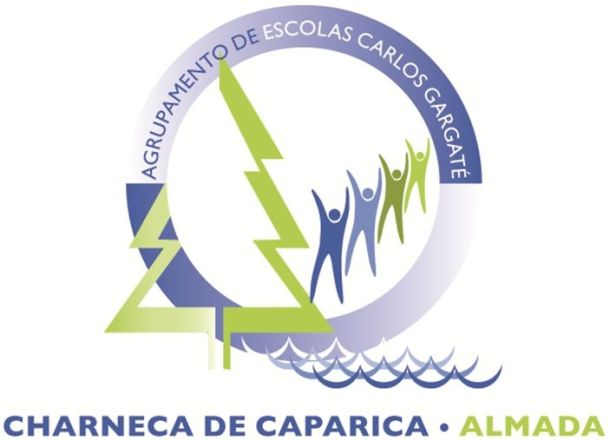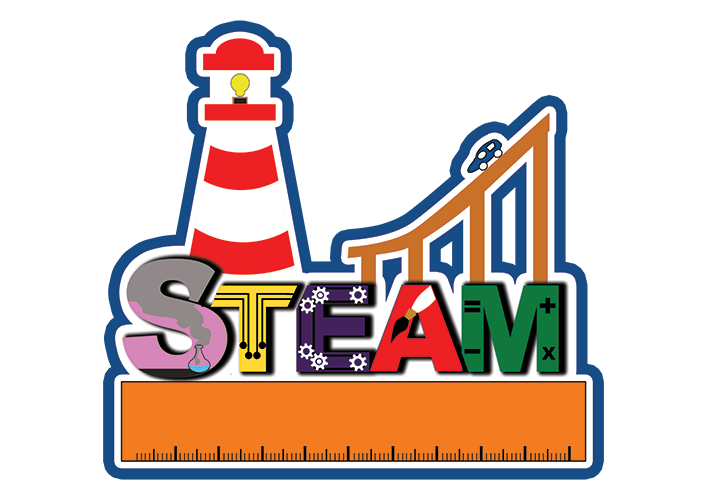Carlos Gargaté School Cluster Charneca de Caparica - Portugal
Carlos Gargaté School Cluster Charneca de Caparica - Portugal
-
English Text
Carlos Gargaté school (EBCG) belongs to a cluster made up of three schools (AECG), which provide compulsory basic education for 4-15 year-olds in the municipality of Almada, twenty kilometres south of Lisbon, in the Greater Lisbon area. The cluster has 86 teachers, 39 support staff and 1200 students in 48 classes.
In 1996/97, EBCG became a pilot institution for the government’s “Projecto de Gestão Flexível do Currículo” (Project for Flexible Management of the Curriculum). This project introduced curriculum changes intended to allow and support all students to learn in a more meaningful way, to become more autonomous and also to be able to demonstrate their competence in the skills and knowledge required by the national curriculum, by the end of compulsory education. In 1998, The Ministry of Education invited EBCG to join its “Good hope, good practices” programme, in order to disseminate current innovative practices. The guiding principles of our project for the flexibility of the curriculum later became part of the educational policy, in Portugal, with the curriculum reorganization introduced by Law 6/2002.
Since its opening, this school’s culture has been based on internal reflection and self-assessment practices. Its success has enabled it to become one of 20 Portuguese schools given the opportunity to sign an autonomy contract, the aims of which are:
- Getting more readers (increase of 10% per year);
- Increasing the number of users of the school library (10% per year);
- Improving and increasing the use of ICT as a common educational resource;
- Reducing poor school performance in the main subjects - Portuguese and maths;
- Reducing poor school performance per cycle;
- Improving the quality of students’ success;
- Promoting and diversifying the physical educational programme (offer of new school sports, partnerships);
- Improving the skills for the 21st century, with processes based on the STEAM Education approach.
The autonomy contract remains in force in the school cluster, twenty years later, and is in line with the new Inclusion, Autonomy and Curricular Flexibility programmes, whose aim is to have developed the skills for the 21st century, by the end of compulsory education.
The school has participated in a pilot project to promote the quality of teaching and the success of all students, in which one of our strategies was a new project called “Education through Art”. The guiding principles of this project have once again become part of national educational policy at the time of the curriculum reorganization, introduced by law 55/2018.
Although the STEM (Science, Technology, Engineering, and Mathematics) initiatives developed so far have been an excellent starting point for exploring these four areas of knowledge, the critical process of creativity and innovation remained lacking. Therefore, there has been an increased investment in the STEAM (Science, Technology, Engineering, ART and Mathematics) approach in our school cluster. This increment includes (but is not limited to):
- providing mobile devices for students (either in the form of computer labs or of 1:1 – a single device for each student);
- after-school STEAM clubs or programmes;
- STEAM curriculum - in which projects using STEAM practices are embedded;
- BYOD initiatives (bring your own device);
- STEAM days - to encourage hands-on exploration within each of these subjects, for students aged 5- 15;
- robotics programmes;
- professional learning communities already implemented in our school with very good overall feedback;
- participating in national science projects (Eco-schools, European Blue Flag Association, Ilídio Pinho Foundation) and in the international STEM project, Linpilcare.
-
Portugese Text
A escola Carlos Gargaté (EBCG) pertence a um agrupamento formado por três escolas (AECG), que oferece educação básica obrigatória a crianças dos 4 aos 15 anos de idade, no município de Almada, vinte quilómetros a sul de Lisboa, na região da Grande Lisboa. O agrupamento tem 86 professores, 39 funcionários e 1200 alunos em 48 turmas.
Em 1996/97, a EBCG tornou-se uma instituição piloto do “Projeto de Gestão Flexível do Currículo” do governo. Este projeto introduziu alterações curriculares destinadas a permitir e apoiar todos os alunos a aprenderem de um modo mais significativo, a tornarem-se mais autónomos e também a serem capazes de demonstrar as suas capacidades relativamente às competências e conhecimentos exigidos pelo currículo nacional, no final da escolaridade obrigatória. Em 1998, o Ministério da Educação convidou a EBCG a participar do programa “Boa esperança, boas práticas”, a fim de disseminar as práticas inovadoras em curso. Os princípios orientadores do nosso “Projeto de Flexibilização Curricular” vieram posteriormente a fazer parte da política educativa em Portugal, na reorganização curricular introduzida pela Lei n.º 6/2002.
Desde a sua abertura, a cultura desta escola tem tido por base práticas internas de reflexão e de autoavaliação. O seu sucesso permitiu-lhe tornar-se uma das 20 escolas portuguesas que tiveram a oportunidade de assinar um contrato de autonomia, e cujos objetivos são:
- Conseguir mais leitores (aumento de 10% ao ano)
- Aumentar o uso da biblioteca escolar (aumento de 10% ao ano)
- Melhorar e aumentar o uso das TIC como recurso educacional habitual
- Reduzir o fraco desempenho escolar nas principais disciplinas - português e matemática
- Reduzir o mau desempenho escolar por ciclo
- Melhorar a qualidade do sucesso dos alunos
- Melhorar e diversificar o programa de educação física (novas ofertas de desporto escolar, parcerias) entre os alunos
- Melhorar as competências para o século XXI, com processos baseados numa abordagem STEAM Education;
O contrato de autonomia continua em vigor no Agrupamento, vinte anos depois, e está de acordo com os novos programas de Inclusão, Autonomia e Flexibilidade Curricular, que têm como objetivo desenvolver as competências para o século XXI, até o final da escolaridade obrigatória.
A escola participou num projeto piloto para a promoção da qualidade do ensino e para o sucesso de todos os alunos e uma das nossas das estratégias foi criar um novo projeto, chamado “Educar pelas artes”. Os princípios norteadores deste projeto tornaram-se, mais uma vez, parte da política nacional aquando da reorganização curricular, introduzida pela lei 55/2018.
Embora as iniciativas STEM (Ciências, Tecnologia, Engenharia e Matemática), desenvolvidas até agora, tenham sido um excelente ponto de partida para a exploração daquelas quatro áreas de conhecimento, o processo crítico de criatividade e inovação continua em falta. Assim sendo, temos vindo a incrementar, no agrupamento, o investimento na abordagem STEAM (Ciências, Tecnologia, Engenharia, ARTES e Matemática). Este incremento inclui (não se limitando a):
- disponibilização de dispositivos móveis aos alunos (na forma de laboratórios de informática ou de 1: 1 - um dispositivo por aluno);
- clubes ou programas extracurriculares STEAM;
- Currículo STEAM - no qual os projetos que utilizam práticas STEAM estão incorporados;
- Iniciativas BYOD (traz o teu próprio dispositivo);
- Dias STEAM - com o objetivo de incentivar a exploração prática em cada uma destas disciplinas, para alunos entre os 5 e os 15 anos;
- programas de robótica;
- comunidades de aprendizagem profissional, já implementadas na nossa escola, com muito bom feedback geral;
- participação em projetos científicos nacionais* (Eco-escolas, Associação Europeia da Bandeira Azul, Fundação Ilídio Pinho) e no projeto STEM internacional Linpilcare.
The STEAMING project has been funded by the European Commission through the Erasmus + programme. The European Commission's support for the production of this publication does not constitute an endorsement of the contents, which reflect the views only of the authors, and the Commission cannot be held responsible for any use which may be made of the information contained therein.







